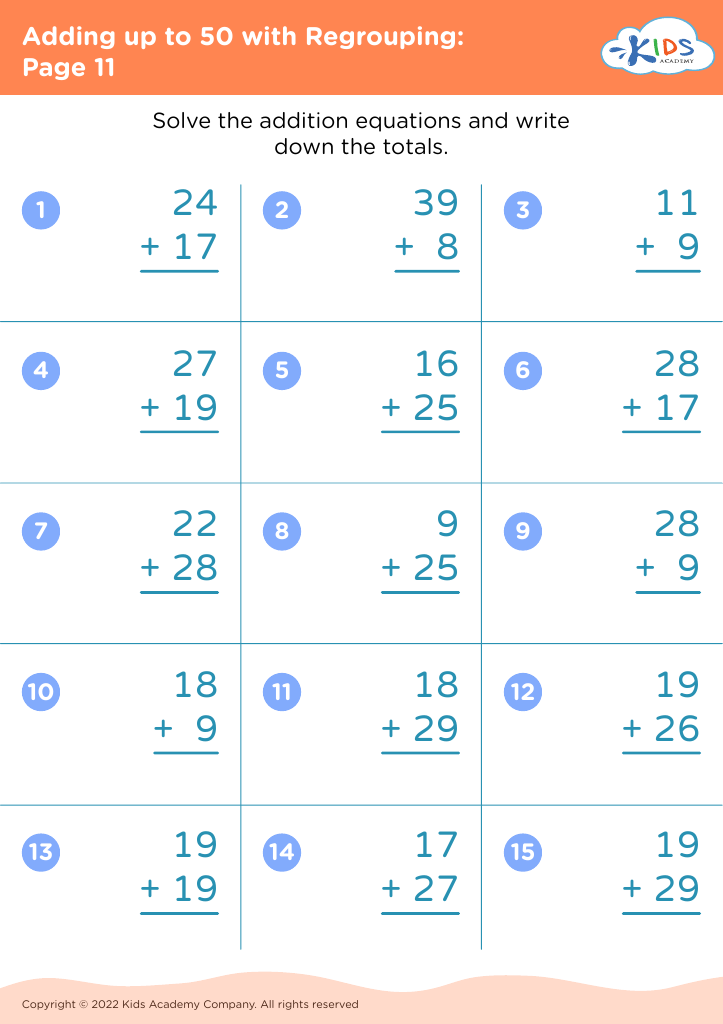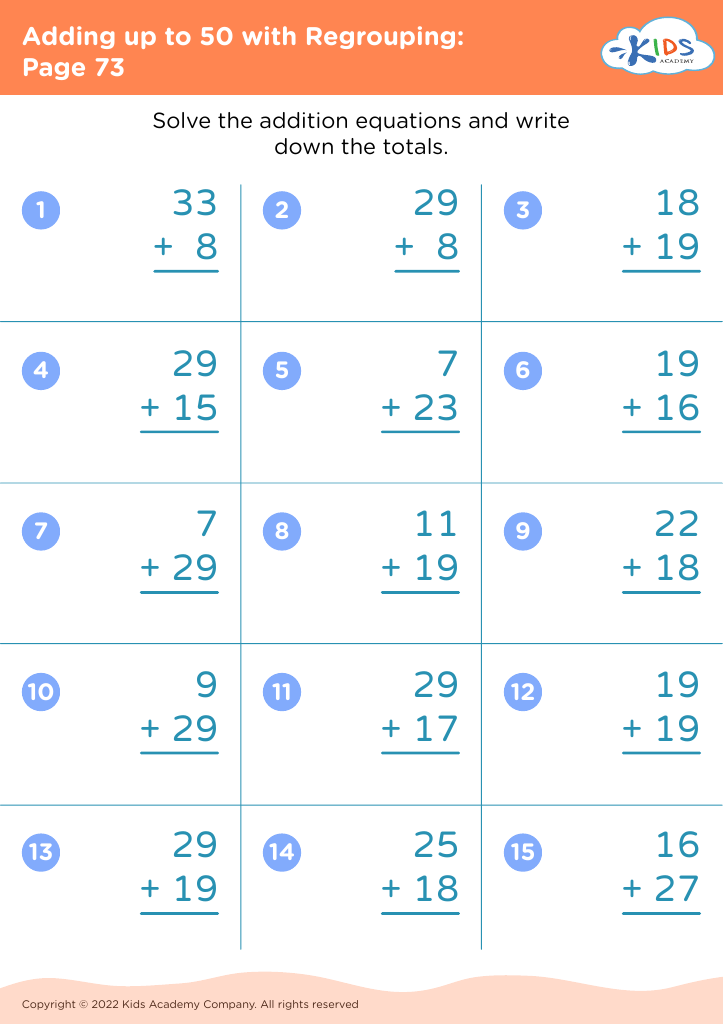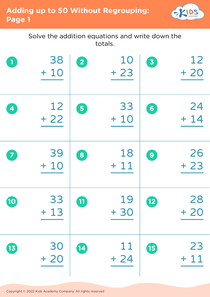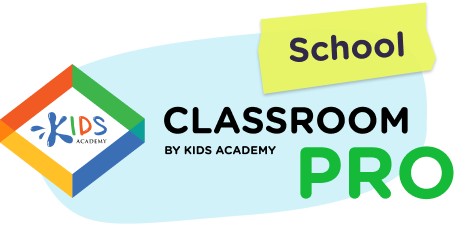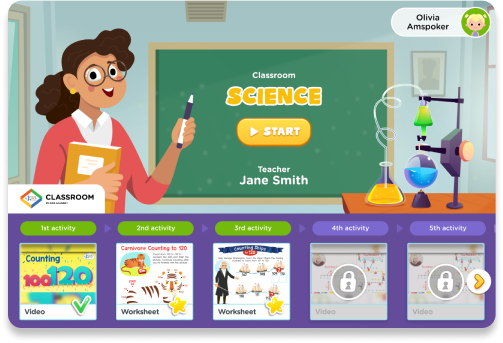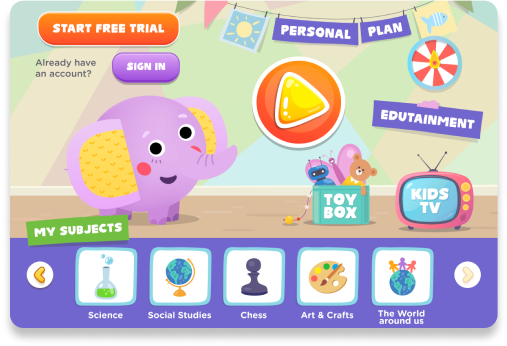Shape Recognition Adding up to 50 with Regrouping Worksheets for Ages 5-7
6 filtered results
-
From - To
Enhance your child's math journey with our "Shape Recognition Adding up to 50 with Regrouping" worksheets, specially designed for ages 5-7. These engaging and interactive worksheets combine essential shape recognition skills with exciting addition exercises. Children will not only practice adding numbers up to 50 using regrouping techniques but also enhance their understanding of geometric shapes through fun visuals and real-world examples. Our resources promote critical thinking, boost confidence in math, and encourage a love for learning. With colorful illustrations and age-appropriate challenges, these worksheets provide a well-rounded mathematical experience that supports foundational skills crucial for future success.
Shape recognition and the ability to add numbers up to 50 with regrouping are foundational skills for young learners aged 5-7, which significantly influence future math competence and overall cognitive development. Understanding shapes enhances a child’s spatial awareness, essential for problem-solving and real-world applications, such as architecture and design. This foundational skill also supports later concepts in geometry and comprehension of the physical world, fostering critical thinking and observation abilities.
Meanwhile, mastering addition with regrouping instills a solid number sense and familiarity with basic arithmetic concepts. At this age, children are developing their cognitive abilities, and learning to manage larger numbers equips them to tackle more complex mathematics in the coming years. Regrouping promotes understanding of place value and the concept of carrying over, critical for fluent addition and subtraction. Together, these skills set the stage for students to approach mathematical concepts with confidence, reducing future anxiety around math.
By investing effort into shape recognition and addition up to 50 with regrouping, parents and teachers empower children to build a robust mathematical foundation. This paves the way for academic success, enhances problem-solving skills, and nurtures a lifelong appreciation for learning and exploration in mathematics.

